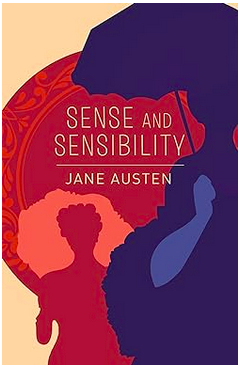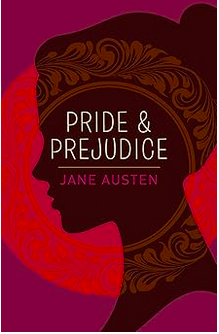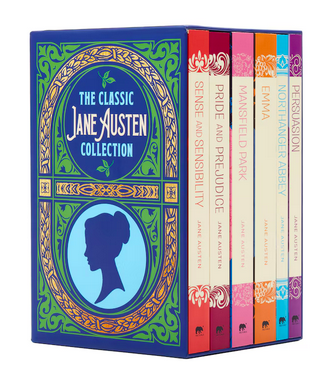An Ill-disposed Narrator? Backhanded Insults in Sense and Sensibility, by Kathy Cawsey
Jane Austen’s use of “free indirect discourse” has been examined and (rightly) praised by critics, but on this read-through I noticed a sub-technique of that discourse—what I will call the “backhanded insult.” If a backhanded compliment is an actual compliment that carries the undertones of an insult—“Wow, I really like what you’ve done with your hair, I never thought you could look so pretty!”—a backhanded insult is an actual insult that sounds like a compliment. The recipient has to think about it before understanding that they’ve been insulted.

(From Sarah: This is the twenty-third guest post in “A Summer Party for Sense and Sensibility,” which began on June 20th and will continue through to the end of the summer. You can find all the contributions to the blog series here . I hope you’ll join the conversations about S&S in the comments here and on social media: #senseandsensibilitysummer. Thanks for celebrating Jane Austen’s first published novel with us!)
The most obvious example of this kind of insult comes on page three of the book, when John Dashwood is encountered for the first time: “He was not an ill-disposed young man, unless to be rather cold hearted and rather selfish is to be ill-disposed” (Volume 1, Chapter 1). The OED defines “ill-disposed” as “Having a bad disposition; disposed to evil or harm; immoral, wicked; malignant, malevolent.” John Dashwood is not deliberately malignant or malevolent, but as the story goes on it becomes evident that his cold-heartedness and selfishness do dispose him to evil and immoral acts towards his half-sisters, which cause very real harm. The reader wonders what the heck “ill-disposed” means, if it does not mean “cold-hearted and rather selfish”—and so the seeming compliment of not being ill-disposed actually turns into an insult.

This kind of complicated insult abounds in Sense and Sensibility. At the beginning of the next chapter, John Dashwood treats his half-siblings with “as much kindness as he could feel towards any body beyond himself, his wife, and their child” (Volume 1, Chapter 2). Again, a backhanded insult—the reader thinks that he shows them as much kindness as he could feel, before considering that he may, in fact, be able to feel none.
Another famous phrase describes Mrs. Ferrars: “she was not a woman of many words; for, unlike people in general, she proportioned them to the number of her ideas” (Volume 2, Chapter 12). In the context about a book contemptuous of people who talk too much, this starts out as a compliment—but then has a twist of a double hidden insult. Both “people in general”—who talk more than they think—and Mrs. Ferrars—who barely thinks at all—get pilloried.
Deborah Yaffe wrote in this summer party series about the “darkness” that is at the centre of Sense and Sensibility. The humour of this book is part of this darkness: the backhanded insults are funny because we share the joke with the narrator/Elinor, on people who are less intelligent, less astute, less clever than we all are.
Sense and Sensibility is, I think, most easily (and most often) paired with Pride and Prejudice—and not just because of the alliterating, thematically suggestive, enshrined contradictions of the titles. Of all Austen’s books, these two are the most similar: both have a pair of sisters at their core; both explore two radically different ideas of love, marriage, and romance; both address the delicate balance of inner personal desire and integrity with the external pressures of society, family, finances. But the “free indirect discourse” is used very differently.

In Pride and Prejudice, yes, the indirect discourse is almost always channeling Elizabeth’s understanding of the world and its people, yet those opinions are accompanied by details of plot that confirm those judgements. So, for example, when in the first chapter of Pride and Prejudice we are told that Mrs. Bennet “was a woman of mean understanding, little information, and uncertain temper,” we later see the results of Mrs. Bennet’s silliness and changeability in the way she treats Mr. Wickham, or Mr. Bingley, or Lydia.
In Sense and Sensibility, by contrast, we are given judgements and opinions that are rarely supported by the actions of the characters. At times, the actions themselves are described in a way that seems to support the judgments given in the free indirect discourse, but when the narrator’s—or Elinor’s?—assumptions about the motivations behind the actions are removed, the actions become far less reprehensible.
For example, one of the funnier passages in the book is when Robert Ferrars goes into a three-page discussion of the merits of cottages. The narrator says, “Elinor agreed to it all, for she did not think he deserved the compliment of rational opposition” (Volume 2, Chapter 14), because she assumes he is a silly, self-important man who likes to hear himself talk. But what if he were just awkwardly trying to put people at ease who had to live in cottages? Likewise, the narrator imputes selfish impulses to the constant balls and parties and entertainments Sir John provides, without once thinking how grateful the surrounding community must feel at his shouldering the expense and trouble.
Or take Lucy Steele. We are told that “her features were pretty, and she had a sharp quick eye, and a smartness of air, which though it did not give actual elegance or grace, gave distinction to her person” (Volume 1, Chapter 21). “She ain’t pretty, but she looks that way”—what else is prettiness but a way of looking? What is “elegance” or “grace” but “distinction” and “smartness of air”?
The narrator—or Elinor?—is always attributing selfish and base motives to Lucy’s actions. The Steele sisters receive sneering criticism for the “constant and judicious attention [with which] they were making themselves agreeable to Lady Middleton” (Volume 1, Chapter 21). Elinor holds them in contempt for going along with the misbehaviour of Lady Middleton’s children. But how else are they supposed to behave towards their hostess’s offspring when they are guests? (I reread Emily of New Moon a few weeks ago, and this passage reminded me of the incident when both Emily and the New York authoress politely ignore the bad behaviour of a dog each believed belonged to the other.)
I suppose there is evidence for Lucy’s selfish motives at the very end of the book, when she ditches the outcast Edward in favour of his rich brother—but even that is dubious. Surely if she were just out for money, she would have asked to be released from the engagement as soon as Edward was disinherited; yet instead, according to her sister, “she told him directly, she had not the least mind in the world to be off, for she could live with him upon a trifle, and how little so ever he might have, she should be very glad to have it” (Volume 3, Chapter 2).
Elinor’s own motives are not so different from those she imputes to Lucy. When she objects to staying with Mrs. Jennings, she says, “though I think very well of Mrs. Jennings’s heart, she is not a woman whose society can afford us pleasure, or whose protection will give us consequence” (Volume 2, Chapter 3). Shunning someone who has a good heart because she’s worried about “consequence” is not exactly disinterested.
And Mrs. Jennings, more than any other character in the book—Elinor included!—acts from generous, selfless motives. She invites two poor girls to stay with her indefinitely, even though they won’t even tell her whether they prefer cod or salmon for dinner. She fusses about how little Edward and Lucy will have to live on, and resolves to loan them her own maid and get them some furniture. And she insists on staying while Marianne is ill, and treating her as though she were her own child.
Yes, I laughed with Elinor and enjoyed her snide, snobby remarks and clever turns of phrase. But I’m afraid that I, too, would fall far short of her high standards.

All quotations from both books are taken from the Arcturus Publishing editions, 2023.
Kathy Cawsey reads books, writes books about books, and talks about books (mostly medieval) at Dalhousie University in Halifax, Canada. She contributed the photos.

If you enjoyed this post, I hope you’ll consider recommending it to a friend. If you aren’t yet a subscriber, please sign up to receive future guest posts in “A Summer Party for Sense and Sensibility.” The next post, “The Real Romantic? Marianne Dashwood and Fanny Price,” is by Theresa Kenney.
Here are the links to the last two posts, in case you missed them:
Sense and Sensibility Hearkens Back to Its Origins, by Collins Hemingway
Re-Reading Sense and Sensibility, by Sandra Barry

Read more about my books, including Jane Austen’s Philosophy of the Virtues and Jane Austen and the North Atlantic, here.



